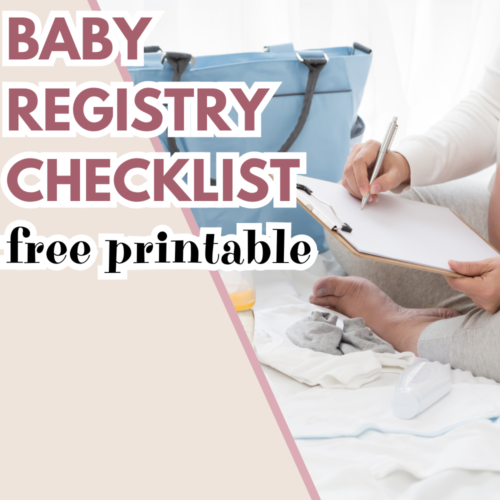Hello fellow parents and anyone navigating the beautiful chaos of life with a newborn baby! As a mother of two—my spirited almost 4-year-old daughter and my sweet 3-month-old son—I’m riding the incredible journey of motherhood right alongside you. Currently on maternity leave from my teaching job, I’ve had some time to reflect on the rollercoaster of emotions that come with welcoming a new life. I want to share a bit of that journey, focusing on the crucial yet often overlooked aspect of our well-being: maternal mental health. Let’s dive into the importance of recognizing and addressing postpartum depression and anxiety, armed with resources and a shared understanding that you’re not alone in this.
You may also like: FIRST 30 DAYS WITH BABY: TIPS FOR NEW PARENTS
Table of Contents
Understanding Postpartum Depression and Anxiety
Bringing a newborn baby into the world is a monumental event full of joy, challenges, and everything in between. However, it’s also a time when many moms might find themselves feeling not quite right, and it’s important to talk about why. Postpartum Depression (PPD) and Postpartum Anxiety (PPA) are real, medical conditions that go beyond the typical “baby blues.”
What Are PPD and PPA?
Simply put, PPD and PPA are types of mood disorders that can affect new parents after the birth of their newborn baby. While PPD is more widely recognized, characterized by deep sadness, hopelessness, and a lack of interest in life, PPA brings with it an overwhelming sense of worry, fear, and anxiety that can make it hard to cope with daily life.
Spotting the Signs
With a newborn baby to care for, it’s easy to brush off feelings of exhaustion or stress as just part of the job. However, signs like persistent sadness, severe mood swings, excessive worrying about your baby’s health, or a paralyzing fear of making mistakes might signal something more. Physical symptoms could also include changes in appetite, sleep disturbances, or unexplained aches and pains.
Why It Matters?
Recognizing PPD and PPA as genuine medical conditions is the first step towards healing. These aren’t just “bad days” or a lack of sleep talking; they’re signs that a new parent might need a helping hand. Seeking support and treatment isn’t a sign of weakness but a brave step towards recovery. Remember, taking care of yourself is just as crucial as taking care of your newborn baby. After all, your well-being is an integral part of your baby’s happy beginning.
Both are common, affecting 1 in 7 women, and they’re nothing to be ashamed of. Recognizing these signs in yourself or a loved one is the first step towards getting the right support and treatment. Remember, acknowledging PPD and PPA is crucial—they’re not just emotional responses but conditions that need care, just like a physical injury would.

Personal Insights
Welcoming each of my newborn babies into the world was an experience filled with unparalleled love, but also, quite frankly, a rollercoaster of emotions. With my first, the overwhelming joy was occasionally shadowed by bouts of anxiety, a common guest that many new moms entertain. The worry about whether I was doing everything ‘right’ for my baby was a constant companion.
Then came my second newborn baby, and the ride felt surprisingly different. Maybe it was the familiarity, or perhaps the confidence gained from round one, but the postpartum period this time had its own unique challenges and fewer anxiety clouds. Yet, the experience underscored a vital truth – no two postpartum journeys are the same. Each brings its own set of emotions and hurdles, reminding us of the diverse nature of maternal mental health.
Why Maternal Mental Health Matters
When a newborn baby arrives, it’s a game changer for everyone involved, but especially for mom. Her mental health? It’s not just about her—it’s the foundation of the newborn’s world. Good maternal mental health supports a mom’s wellbeing, making her more available emotionally and physically for her baby and herself. It’s like ensuring the roots of a tree are strong so the branches can reach out confidently.
But it’s not just about the immediate family cocoon. How a mom feels can significantly influence her baby’s development—from how they sleep to how they learn to interact with the world around them. Plus, a happy, healthy mom contributes to a more harmonious home environment, easing the natural tensions and adjustments that come with a new family member.
And let’s zoom out even further: society benefits when we support maternal mental health. Thriving mothers mean thriving families, which lead to communities that can grow stronger together. When moms feel supported, it sets a positive example, showing that taking care of your mental health is as crucial as physical health, encouraging a healthier next generation.

Support and Resources
Navigating the postpartum period with a newborn baby can sometimes feel like trying to solve a puzzle without the picture on the box. If you’re feeling the weight of PPD or PPA, know there are loads of resources ready to lend a hand:
- Hotlines: Places like Postpartum Support International (PSI) offer hotlines where you can chat with experts or just someone who gets it.
- Websites: Look for sites dedicated to maternal mental health; they’re packed with articles, forums, and advice that resonate.
- Support Groups: Whether in person or online, finding your tribe of fellow moms can be a game-changer. Sharing stories and solutions can make all the difference.
For the Cheer Squad (Friends & Family):
- Just being there makes a big difference. Offer to listen, help with the baby, or even just do some chores.
- Avoid judgement. Phrases like “Just cheer up” don’t help. Instead, try “How can I support you?”
- Encourage her to seek help and remind her it’s a sign of strength, not weakness.
To All the Moms:
- Your feelings are valid, and reaching out for help is the bravest thing you can do for yourself and your newborn baby. Remember, you’re not alone, and with the right support, things will get better.
Conclusion
As we wrap up this chat about the rollercoaster that is postpartum life with a newborn baby, remember: it’s okay to not always be okay. Recognizing the signs of PPD and PPA, and understanding their impact, is the first step towards healing. There’s a world of support waiting to help you navigate this journey, so never hesitate to reach out. Together, let’s break the silence around maternal mental health and build a supportive community for all new moms. Because when moms thrive, families flourish.




[…] You may also like: Finding Your Balance With a Newborn Baby: Postpartum Mental Health […]